PROGRAMME
11th Singapore Dialogue on Sustainable World Resources (SWR):
Next Economy and the Future of Resources
Date: Thursday, 9 May 2024
08:30-09:00
Guest Registration
09:00-09:10
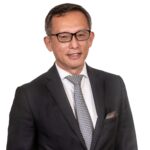 |
Assoc. Prof. Simon TayChairman Simon SC Tay is a public intellectual as well as an advisor to major corporations and policy-makers. He is Chairman of the Singapore Institute of International Affairs, the country’s oldest think tank. The SIIA focuses on the politics, economic policies and sustainablity issues that matter to policy makers and corporations in ASEAN and Asia. Consistently ranked by an international survey within the top 50 of the world and amongst the best in ASEAN, the SIIA is also rated the No 1 independent think tank across all of Asia. The SIIA works actively in “track 2” diplomacy with policy makers, not only in Singapore but across ASEAN, including previously advising the Indonesian and Myanmar governments on foreign investment. SIIA members and benefactors include many of leading Singaporean companies and multinationals. Presently, Prof Tay serves as an Ambassador for Singapore, accredited to Greece on a non-residential basis. He is a board member of the Maritime Port Authority and also chairs the trade and sustainability dialogues for free trade agreements that Singapore has with the European Union and UK. He has previously served Singapore in a number of public appointments. These include Chairman of the National Environment Agency (2002-08); Expert and Eminent Person in the ASEAN Regional Forum (2002–2019); independent Member of Parliament (1997-2001); and to coordinate the country’s equivalent of the Peace Corps (1990-93). He co-chaired a number of national public commissions such as Singapore 21, the Singapore Green Plan and the Singapore Concept Plan 2010. In 2006, Prof Tay received a National Day Award. Additionally, Tay is a tenured Associate Professor, teaching since 1995 at the National University of Singapore Faculty of Law with a focus on international law. He has also taught as visiting professor at Harvard Law School, the Fletcher School and Yale University. In addition to academic works, his book, Asia Alone: the Dangerous Post Crisis Divide from America (Wiley 2010) was well reviewed in the Economist and Financial Times. His comments and interviews often feature in the international and regional media. Another aspect of Prof Tay’s work is to advise major corporations. Currently, he is Senior Consultant at WongPartnership, a leading Asian law firm of over 300 lawyers and offices in ASEAN, China and the Middle East. Previously, he served on global advisory boards for MUFG Bank of Japan, and Toyota Japan, and was Corporate Advisor to Temasek Holdings (2006-09). For more than a decade, he served as independent board director for companies including the LGT Bank of Liechtenstein and Deutsche Boerse (Asia). He is often asked to brief major corporate boards and financial institutions and has spoken at leading business conferences including the World Economic Forum, APEC and ASEAN CEO Summits. Additionally, Tay is a prize winning author of fiction and poetry. His 2010 novel City of Small Blessings was awarded the Singapore Literature Prize and in 2019 he received the SE Asia Write award in recognition of contributions to the region’s writing. He graduated in law from the National University of Singapore (1986), where he was president of the student union for three terms. He also holds a Masters in Law from Harvard Law School (1993-94), which he attended on a Fulbright Scholarship and where he won the Laylin prize for the best thesis in international law. He was born in 1961 and is the only son of the late Tay Seow Huah, a pioneer generation civil servant reporting to the Prime Minister and Defence Minister, and the late Madam Cheong Keong Hin, a teacher. Prof Tay is married and has one son. |
09:10-09:40
- Why and how must ASEAN decarbonise and transition to a green economy?
- What are Singapore’s roles and initiatives to facilitate the green transition in ASEAN?
- How can ASEAN countries work together as one for a green transition that benefits everyone in the region?
Keynote Speaker:
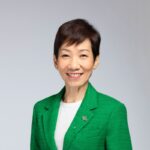 |
Ms. Grace FuMinister for Sustainability and the Environment Ms Grace Fu is Minister for Sustainability and the Environment. She graduated with a Bachelor of Accountancy (Honours), and subsequently obtained a Masters of Business Administration from the National University of Singapore. She spent the early part of her career in the private sector and last held the position of Chief Executive Officer, PSA Southeast Asia and Japan, where she was responsible for the business performance of PSA’s port terminals in Singapore, Thailand, Brunei and Japan. Ms Fu was elected as a Member of Parliament in June 2006 for the Group Representation Constituency of Jurong, Yuhua Division. She contested and won her seat in the Yuhua Single Member Constituency in the 2011, 2015 and 2020 General Elections. Since 2006, Ms Fu held appointments in various Ministries including National Development, Education, Information, Communications and the Arts, Environment and Water Resources, and Foreign Affairs.In 2015, Ms Fu was appointed Minister for Culture, Community and Youth, and Leader of the House. In July 2020, Ms Fu was appointed Minister for Sustainability and the Environment. In January 2024, Ms Fu concurrently assumed the responsibility as Minister-in-charge of Trade Relations. In the same month that year, she was elected as President of the Singapore National Olympic Council. Ms Fu enjoys an active lifestyle, which includes running, yoga, and hiking. She is married with three sons. |
Moderator:
 |
Assoc. Prof. Simon TayChairman Simon SC Tay is a public intellectual as well as an advisor to major corporations and policy-makers. He is Chairman of the Singapore Institute of International Affairs, the country’s oldest think tank. The SIIA focuses on the politics, economic policies and sustainablity issues that matter to policy makers and corporations in ASEAN and Asia. Consistently ranked by an international survey within the top 50 of the world and amongst the best in ASEAN, the SIIA is also rated the No 1 independent think tank across all of Asia. The SIIA works actively in “track 2” diplomacy with policy makers, not only in Singapore but across ASEAN, including previously advising the Indonesian and Myanmar governments on foreign investment. SIIA members and benefactors include many of leading Singaporean companies and multinationals. Presently, Prof Tay serves as an Ambassador for Singapore, accredited to Greece on a non-residential basis. He is a board member of the Maritime Port Authority and also chairs the trade and sustainability dialogues for free trade agreements that Singapore has with the European Union and UK. He has previously served Singapore in a number of public appointments. These include Chairman of the National Environment Agency (2002-08); Expert and Eminent Person in the ASEAN Regional Forum (2002–2019); independent Member of Parliament (1997-2001); and to coordinate the country’s equivalent of the Peace Corps (1990-93). He co-chaired a number of national public commissions such as Singapore 21, the Singapore Green Plan and the Singapore Concept Plan 2010. In 2006, Prof Tay received a National Day Award. Additionally, Tay is a tenured Associate Professor, teaching since 1995 at the National University of Singapore Faculty of Law with a focus on international law. He has also taught as visiting professor at Harvard Law School, the Fletcher School and Yale University. In addition to academic works, his book, Asia Alone: the Dangerous Post Crisis Divide from America (Wiley 2010) was well reviewed in the Economist and Financial Times. His comments and interviews often feature in the international and regional media. Another aspect of Prof Tay’s work is to advise major corporations. Currently, he is Senior Consultant at WongPartnership, a leading Asian law firm of over 300 lawyers and offices in ASEAN, China and the Middle East. Previously, he served on global advisory boards for MUFG Bank of Japan, and Toyota Japan, and was Corporate Advisor to Temasek Holdings (2006-09). For more than a decade, he served as independent board director for companies including the LGT Bank of Liechtenstein and Deutsche Boerse (Asia). He is often asked to brief major corporate boards and financial institutions and has spoken at leading business conferences including the World Economic Forum, APEC and ASEAN CEO Summits. Additionally, Tay is a prize winning author of fiction and poetry. His 2010 novel City of Small Blessings was awarded the Singapore Literature Prize and in 2019 he received the SE Asia Write award in recognition of contributions to the region’s writing. He graduated in law from the National University of Singapore (1986), where he was president of the student union for three terms. He also holds a Masters in Law from Harvard Law School (1993-94), which he attended on a Fulbright Scholarship and where he won the Laylin prize for the best thesis in international law. He was born in 1961 and is the only son of the late Tay Seow Huah, a pioneer generation civil servant reporting to the Prime Minister and Defence Minister, and the late Madam Cheong Keong Hin, a teacher. Prof Tay is married and has one son. |
09:40-10:10
Keynote Speaker:
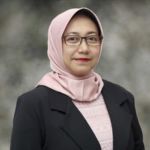 |
Dr. Vivi YulaswatiDeputy Minister, Maritime and Natural Resources Head of National Secretariat of SDGs Vivi Yulaswati is the Deputy Minister for Maritime and Natural Resources in the Indonesia’s Ministry of National Development Planning (Bappenas). She is also the Head of National Secretariat of Indonesia’s SDGs. She has been involved/lead in the design of Indonesia’s Vision 2045, Just Energy Transition Partnership, Food System Transformation, Low Carbon Development, Green Economy Framework, Blue Economy Framework and Action Plan, as well as SDGs Road Map, National Action Plan, Voluntary National Review, and many regulations. She had long experience before in developing comprehensive social protection and subsidy reforms. She holds PhD in Planning and Development from University of Southern California (2004), Master in Urban and Regional Planning from University of Wisconsin-Madison, USA (1999), bachelor from University of Indonesia (1991); and took many courses in social protection, evaluation, and change management in HKS and LSE. She just received an Outstanding Public Social Innovation Award from Schwab Foundation World Economic Forum |
Moderator:
 |
Assoc. Prof. Simon TayChairman Simon SC Tay is a public intellectual as well as an advisor to major corporations and policy-makers. He is Chairman of the Singapore Institute of International Affairs, the country’s oldest think tank. The SIIA focuses on the politics, economic policies and sustainablity issues that matter to policy makers and corporations in ASEAN and Asia. Consistently ranked by an international survey within the top 50 of the world and amongst the best in ASEAN, the SIIA is also rated the No 1 independent think tank across all of Asia. The SIIA works actively in “track 2” diplomacy with policy makers, not only in Singapore but across ASEAN, including previously advising the Indonesian and Myanmar governments on foreign investment. SIIA members and benefactors include many of leading Singaporean companies and multinationals. Presently, Prof Tay serves as an Ambassador for Singapore, accredited to Greece on a non-residential basis. He is a board member of the Maritime Port Authority and also chairs the trade and sustainability dialogues for free trade agreements that Singapore has with the European Union and UK. He has previously served Singapore in a number of public appointments. These include Chairman of the National Environment Agency (2002-08); Expert and Eminent Person in the ASEAN Regional Forum (2002–2019); independent Member of Parliament (1997-2001); and to coordinate the country’s equivalent of the Peace Corps (1990-93). He co-chaired a number of national public commissions such as Singapore 21, the Singapore Green Plan and the Singapore Concept Plan 2010. In 2006, Prof Tay received a National Day Award. Additionally, Tay is a tenured Associate Professor, teaching since 1995 at the National University of Singapore Faculty of Law with a focus on international law. He has also taught as visiting professor at Harvard Law School, the Fletcher School and Yale University. In addition to academic works, his book, Asia Alone: the Dangerous Post Crisis Divide from America (Wiley 2010) was well reviewed in the Economist and Financial Times. His comments and interviews often feature in the international and regional media. Another aspect of Prof Tay’s work is to advise major corporations. Currently, he is Senior Consultant at WongPartnership, a leading Asian law firm of over 300 lawyers and offices in ASEAN, China and the Middle East. Previously, he served on global advisory boards for MUFG Bank of Japan, and Toyota Japan, and was Corporate Advisor to Temasek Holdings (2006-09). For more than a decade, he served as independent board director for companies including the LGT Bank of Liechtenstein and Deutsche Boerse (Asia). He is often asked to brief major corporate boards and financial institutions and has spoken at leading business conferences including the World Economic Forum, APEC and ASEAN CEO Summits. Additionally, Tay is a prize winning author of fiction and poetry. His 2010 novel City of Small Blessings was awarded the Singapore Literature Prize and in 2019 he received the SE Asia Write award in recognition of contributions to the region’s writing. He graduated in law from the National University of Singapore (1986), where he was president of the student union for three terms. He also holds a Masters in Law from Harvard Law School (1993-94), which he attended on a Fulbright Scholarship and where he won the Laylin prize for the best thesis in international law. He was born in 1961 and is the only son of the late Tay Seow Huah, a pioneer generation civil servant reporting to the Prime Minister and Defence Minister, and the late Madam Cheong Keong Hin, a teacher. Prof Tay is married and has one son. |
10:10-11:10
ASEAN’s resource sector has made progress on sustainability in the past decade. However, critical questions are emerging about the road ahead, as new governments take office in key ASEAN economies. Will these administrations maintain a focus on ecosystem conservation and restoration, or will economic pressures result in the opening up of more land for farms and plantations? This panel will explore the delicate balance between sustainable growth and other needs such as energy and food security, especially in light of the evolving international and domestic demand for resources.
- What directions are government policy and national politics taking on sustainability? What are the implications for businesses?
- Where is supply and demand for resources heading in the next 10 years? What does this mean for international trade flows?
- What enabling conditions are needed to strengthen both sustainability and resilience in the resource sector?
Panellists:
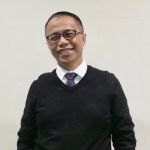 |
Dr. Dradjad Hari WibowoFounding Chair Chair Dradjad H. Wibowo (59 years) earned his graduate degree from the Department of Agricultural Economics, Faculty of Agriculture, Bogor Agricultural Institute (IPB) Indonesia. He was awarded the Best Graduate of the Faculty of Agriculture in the June 1987 graduation. He earned his Master of Economics and Doctor of Philosophy degrees from the Department of Economics, the University of Queensland, Australia. Since 1999 Dradjad Wibowo has been writing hundreds of articles on the Indonesian economy, finance, politic and strategic affairs in leading news outlets in Indonesia. His opinions appear very frequently in Indonesian press, including TVs, radios and printed-and online-media. He was a member of the Board of Directors of the Institute for Development Economics and Finance (INDEF), a leading policy think-tank in Indonesia, from September 1999 to February 2004 and continues to serve the Institute as one of its shareholders and Senior Economists until today. He served as the Executive Director of the Indonesian Eco-labeling Institute (LEI) from May 2000 to February 2004. He briefly joined PT Bank Negara Indonesia Tbk., a leading Indonesian state bank, as a member of the Board of Commissioners from December 2003 to May 2004 to help restructure the bank following its US$ 170 million-letter of credit scandal. He was elected as an Alternate Spokesperson for the Producing Countries Caucus in the International Tropical Timber Organization (ITTO) meeting in Panama, November 2003. In early 2000s he served as a member / spokesperson of the Republic of Indonesia’s delegation to various international organizations such as ITTO and Asian Forestry Partnership. He served as an expert member of the National Food Security Board from 2002 to October 2004. In July-August 2002 he chaired a National Team on Domestic Debt Reduction, focusing on alternative policies to reduce debt stock and to minimize debt service payments on banking recapitalization bonds. He joined the National Mandate Party (Partai Amanat Nasional – PAN) in January 2004. He served as the party’s Vice-Chairperson from January 2010 to February 2015 and as the Vice-Chairperson of the party’s Ethics and Honor Board from February 2015 to February 2020. He is currently serving as the Chairman of PAN’s Board of Experts. He was elected as a Member of Parliament in 2004 and sat on the Banking and Finance Committee for the period of 2004-2009. He founded Sustainable Development Indonesia (SDI) in 2009 to foster implementation of sustainable development. In 2011 he founded the Indonesian Forestry Certification Cooperation (IFCC) to promote certification of sustainable forest management and forest-based products based on the Programme for the Endorsement of Forest Certification’s (PEFC’s) scheme. He serves as IFCC’s Chairperson from 2011 to 2021 and as its Board of Founders’ Chairperson since 2021. He co-founded and is an Honorary Chairperson of the Foundation for International Human Rights Reporting Standards (FIHRRST) based in Brussel and Jakarta. He served as a member of the Impartiality Committee for AJA Registrars Europe, Rome, from 2015 to December 2019. From November 2019, he serves as a member of PEFC’s Board. In 2007 he became an Associate Professor (Lektor Kepala) at the Graduate School of Management at the ABFI Perbanas Institute, Jakarta. He has been publishing articles on health economics, forestry and sustainability in scientific journals like The Bulletin of the World Health Organization, BMC Public Health and International Journal of Social Economics. He served as Chairperson of the Strategic Information and Policy Council of the State Intelligence Agency (BIN) from August 2015 to October 2016. |
 |
Mr. Joseph (JD) D’Cruz
|
 |
Mr. Olivier TichitDirector of Sustainability Olivier Tichit is the Director of Sustainability of Musim Mas Group, based in Medan (Indonesia). Olivier oversees the implementation and execution of Musim Mas Sustainability plan. His role includes reviewing the Group sustainability policy and strategy, as well as working with the Group’s key customers and stakeholders to identify synergies for enhancing palm oil sustainability. Musim Mas is an active member of the Roundtable for Sustainable Palm Oil (RSPO), where Olivier serves as alternate member of the Board of Governors, and as co-chair of the Standing Committee for Standards, and as member of the Finance Committee and of the Standing Committee for Assurance. Prior to Musim Mas, Olivier was the Group Head of Sustainability of SIPEF, a Belgian plantations company present in Cote d’Ivoire, Indonesia and Papua New Guinea. Before joining SIPEF, Olivier was the Indonesia Country Manager for a major commodities merchant group, Ecom Agroindustrial, and spearheaded sustainable certifications for coffee smallholders. |
 |
Mr. Craig Tribolet
|
Moderator:
 |
Ms. Cheryl Chen
|
11:10-11:40
Coffee/Tea Break
11:40-12:10
- What is Malaysia’s vision for its trade and export growth in a greener future economy, especially in its key industries and target markets?
- Given the continued role of agri commodities in Malaysia’s economy, how does Malaysia ensure its agri exports are seen as sustainable at the global level, in the context of environmental requirements from the EU and other markets?
- What can the public and corporate stakeholders do to work together to ensure synergy in achieving sustainable exports?
Keynote Speaker:
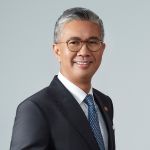 |
YB Senator Tengku Datuk Seri Utama Zafrul AzizMinister of Investment, Trade & Industry Tengku Zafrul Aziz is Malaysia’s Minister of Investment, Trade & Industry, responsible for growing the country’s manufacturing industry and trade, as well as attracting investments into the country. Since his appointment in December 2022, he has consistently pledged to make Malaysia more pro-business, pro-investment and pro-trade. Tengku Zafrul was previously Malaysia’s Minister of Finance from March 2020 – October 2022. He led the curation and implementation of eight stimulus and aid packages, the four-phased National Recovery Plan (NRP) to exit the pandemic safely, as well as three national budgets (2021, 2022 and 2023). Post-pandemic, Malaysia achieved a GDP of 8.7% in 2022, the highest among ASEAN countries, and the nation’s highest in 22 years, largely due to the targeted aid measures and NRP. These strategic measures are detailed in his book published by MPH in 2022, entitled Weathering the Economic Storm: A Journey through the Uncharted Waters of COVID-19. Prior to his ministerial appointments, Tengku Zafrul was in the banking and financial sector for over 22 years, specializing in investment banking, sustainable finance, change management and regional policy execution.He was the Group CEO and Executive Director of CIMB Group Holdings Berhad, a leading ASEAN universal bank and a global leader in Islamic finance, with presence in 13 countries. He had also served as the President Commissioner of PT Bank CIMB Niaga in Indonesia. Earlier years saw him helm senior positions at Maybank Investment Bank Berhad, Maybank Kim Eng Holdings, Citigroup Malaysia, Kenanga Holdings Berhad, Avenue Securities and Tune Money. A keen sports, sustainability and youth development enthusiast, Tengku Zafrul had spearheaded various initiatives such as CIMB’s The Cooler Earth Sustainability Summit, CIMB Cycle, CIMB ASEAN Scholarship, the CIMB-PGA Classic Golf Tournament and the CIMB Foundation’s proprietary Be$MART financial literacy programme for less privileged tertiary students. Tengku Zafrul’s passion for cycling and running helped him complete the full Iron Man Challenge in 2019. He also successfully raised funds for charity via the Abbott World Marathon Majors, all six of which were accomplished between 2016 – 2018. Tengku Zafrul is also an Honorary Captain in Malaysia’s Royal Navy Volunteer Reserve. |
Moderator:
 |
Assoc. Prof. Simon TayChairman Simon SC Tay is a public intellectual as well as an advisor to major corporations and policy-makers. He is Chairman of the Singapore Institute of International Affairs, the country’s oldest think tank. The SIIA focuses on the politics, economic policies and sustainablity issues that matter to policy makers and corporations in ASEAN and Asia. Consistently ranked by an international survey within the top 50 of the world and amongst the best in ASEAN, the SIIA is also rated the No 1 independent think tank across all of Asia. The SIIA works actively in “track 2” diplomacy with policy makers, not only in Singapore but across ASEAN, including previously advising the Indonesian and Myanmar governments on foreign investment. SIIA members and benefactors include many of leading Singaporean companies and multinationals. Presently, Prof Tay serves as an Ambassador for Singapore, accredited to Greece on a non-residential basis. He is a board member of the Maritime Port Authority and also chairs the trade and sustainability dialogues for free trade agreements that Singapore has with the European Union and UK. He has previously served Singapore in a number of public appointments. These include Chairman of the National Environment Agency (2002-08); Expert and Eminent Person in the ASEAN Regional Forum (2002–2019); independent Member of Parliament (1997-2001); and to coordinate the country’s equivalent of the Peace Corps (1990-93). He co-chaired a number of national public commissions such as Singapore 21, the Singapore Green Plan and the Singapore Concept Plan 2010. In 2006, Prof Tay received a National Day Award. Additionally, Tay is a tenured Associate Professor, teaching since 1995 at the National University of Singapore Faculty of Law with a focus on international law. He has also taught as visiting professor at Harvard Law School, the Fletcher School and Yale University. In addition to academic works, his book, Asia Alone: the Dangerous Post Crisis Divide from America (Wiley 2010) was well reviewed in the Economist and Financial Times. His comments and interviews often feature in the international and regional media. Another aspect of Prof Tay’s work is to advise major corporations. Currently, he is Senior Consultant at WongPartnership, a leading Asian law firm of over 300 lawyers and offices in ASEAN, China and the Middle East. Previously, he served on global advisory boards for MUFG Bank of Japan, and Toyota Japan, and was Corporate Advisor to Temasek Holdings (2006-09). For more than a decade, he served as independent board director for companies including the LGT Bank of Liechtenstein and Deutsche Boerse (Asia). He is often asked to brief major corporate boards and financial institutions and has spoken at leading business conferences including the World Economic Forum, APEC and ASEAN CEO Summits. Additionally, Tay is a prize winning author of fiction and poetry. His 2010 novel City of Small Blessings was awarded the Singapore Literature Prize and in 2019 he received the SE Asia Write award in recognition of contributions to the region’s writing. He graduated in law from the National University of Singapore (1986), where he was president of the student union for three terms. He also holds a Masters in Law from Harvard Law School (1993-94), which he attended on a Fulbright Scholarship and where he won the Laylin prize for the best thesis in international law. He was born in 1961 and is the only son of the late Tay Seow Huah, a pioneer generation civil servant reporting to the Prime Minister and Defence Minister, and the late Madam Cheong Keong Hin, a teacher. Prof Tay is married and has one son. |
12:10-13:10
Around the world, markets are becoming more sensitive to issues such as carbon emissions and deforestation. A new wave of regulations is on the horizon – the European Union has implemented a Carbon Border Adjustment Mechanism, and its Deforestation Regulation is set to take effect by the end of 2024. Other major economies like the United States are considering similar moves. This panel will delve into the future of global trade in forest and agricultural commodities, exploring whether regulatory compliance will be felt as an additional cost for ASEAN businesses, or if there are untapped synergies with ASEAN’s own sustainability initiatives and potential upsides.
- What impact will the European Union’s Deforestation Regulation (EUDR) and other rules being introduced by major markets have on trade with ASEAN?
- How are companies and smallholders navigating different sustainability standards, including both trade rules and product certifications?
- Are these requirements a burden or do they present opportunities, such as granting market access and giving financiers more confidence to invest in ASEAN’s resource sectors?
Panellists:
 |
Mr. Paolo VerganoPartner Mr. Paolo R. Vergano is a founding partner at FratiniVergano – European Lawyers, a law firm based in Brussels, Belgium that also operates in Singapore and Jakarta (www.fratinivergano.eu). His practice focuses on international trade law (WTO, EU and ASEAN law, dispute settlement, market access advisory, and trade negotiation and advocacy in the areas of agriculture, services and non-tariff measures, such as sanitary and phytosanitary measures, technical barriers to trade, and trade and sustainable development). Prior to co-founding FratiniVergano in 2007, he worked in the international trade departments of law firms in both Washington, DC and Brussels, Belgium and with the External Economic Relations (REX) Committee of the European Parliament. Mr. Vergano is admitted in Belgium and is a member of the Brussels’ bar (A list) and of the Inter-Pacific Bar Association, of which he is a former Chair of the International Trade Committee. Mr. Vergano is a graduate of the Faculty of Law of the University of Torino, Italy (1995), received a Diplôme Supérieur de Droit Comparé at the Faculté Internationale de Droit Comparé in Strasbourg, France (1996) and holds a Master’s degree in International Business and Trade Law from the University of Fordham School of Law in New York, United States (1997). He teaches international trade law at the World Trade Institute in Bern, Switzerland since 2002, and international trade and food law at the LUISS University in Rome, Italy since 2017, and is a frequent lecturer and author on issues of WTO, EU and ASEAN law. Since 2009, he is the Editor of FratiniVergano’s fortnightly publication Trade Perspectives©, (http://www.fratinivergano.eu/en/trade-perspectives), regularly providing readers with a set of recent international trade developments of particular commercial and regulatory interest. Since 2011, Mr. Vergano is also on the Editorial Board of the Global Trade and Customs Journal. |
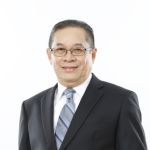 |
Dr. Rizal Affandi LukmanSecretary-General Dr. Rizal Affandi Lukman is currently serves as the Secretary General of Council of Palm Oil Producing Countries (CPOPC), also serves as Senior Advisor to the Coordinating Minister for Economics Affairs of the Republic of Indonesia, with a main role in strengthening foreign economic partnerships. Previously served as Deputy Minister for International Economic Cooperation at the Coordinating Ministry for Economic Affairs, the Republic of Indonesia with main role to oversees the coordination and harmonization of government policies related to international economic cooperation in multilateral, regional and bilateral forum. During his tenure as Deputy Minister, he was also appointed by the President of the Republic of Indonesia as Indonesia Sherpa at the G20 forum during 2016 -2021. During the Indonesian Presidency at the G20 in 2022, he was appointed as Indonesia B20 Sherpa. Under President Susilo Bambang Yudhoyono (SBY) administrative, he worked at the Presidential Palace Office, served as Assistant to the 6th President of the Republic of Indonesia Private Secretary. He was also served as Indonesia’s Senior Official in numerous bilateral cooperation frameworks such as with Japan, China, South Korea, Russia and Singapore as well as regional and sub-regional cooperation such as APEC, ASEAN, IMT-GT and BIMP-EAGA cooperation and has experience as a commissioner in various state-owned enterprises (PT. Krakatau Wajatama, PT. Pertamina Hulu Energy, and Perum Peruri). He also has written various articles for academic journals, mostly in the topic of Economic Affairs, Poverty and Inequality, Monetary, Finance, and Management. He is also an active speaker in various domestic and international workshops and seminars. |
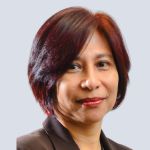 |
Dr. Surina Ismail
|
 |
Mr. Thibaut Weber
|
Moderator:
 |
Assoc. Prof. Simon TayChairman Simon SC Tay is a public intellectual as well as an advisor to major corporations and policy-makers. He is Chairman of the Singapore Institute of International Affairs, the country’s oldest think tank. The SIIA focuses on the politics, economic policies and sustainablity issues that matter to policy makers and corporations in ASEAN and Asia. Consistently ranked by an international survey within the top 50 of the world and amongst the best in ASEAN, the SIIA is also rated the No 1 independent think tank across all of Asia. The SIIA works actively in “track 2” diplomacy with policy makers, not only in Singapore but across ASEAN, including previously advising the Indonesian and Myanmar governments on foreign investment. SIIA members and benefactors include many of leading Singaporean companies and multinationals. Presently, Prof Tay serves as an Ambassador for Singapore, accredited to Greece on a non-residential basis. He is a board member of the Maritime Port Authority and also chairs the trade and sustainability dialogues for free trade agreements that Singapore has with the European Union and UK. He has previously served Singapore in a number of public appointments. These include Chairman of the National Environment Agency (2002-08); Expert and Eminent Person in the ASEAN Regional Forum (2002–2019); independent Member of Parliament (1997-2001); and to coordinate the country’s equivalent of the Peace Corps (1990-93). He co-chaired a number of national public commissions such as Singapore 21, the Singapore Green Plan and the Singapore Concept Plan 2010. In 2006, Prof Tay received a National Day Award. Additionally, Tay is a tenured Associate Professor, teaching since 1995 at the National University of Singapore Faculty of Law with a focus on international law. He has also taught as visiting professor at Harvard Law School, the Fletcher School and Yale University. In addition to academic works, his book, Asia Alone: the Dangerous Post Crisis Divide from America (Wiley 2010) was well reviewed in the Economist and Financial Times. His comments and interviews often feature in the international and regional media. Another aspect of Prof Tay’s work is to advise major corporations. Currently, he is Senior Consultant at WongPartnership, a leading Asian law firm of over 300 lawyers and offices in ASEAN, China and the Middle East. Previously, he served on global advisory boards for MUFG Bank of Japan, and Toyota Japan, and was Corporate Advisor to Temasek Holdings (2006-09). For more than a decade, he served as independent board director for companies including the LGT Bank of Liechtenstein and Deutsche Boerse (Asia). He is often asked to brief major corporate boards and financial institutions and has spoken at leading business conferences including the World Economic Forum, APEC and ASEAN CEO Summits. Additionally, Tay is a prize winning author of fiction and poetry. His 2010 novel City of Small Blessings was awarded the Singapore Literature Prize and in 2019 he received the SE Asia Write award in recognition of contributions to the region’s writing. He graduated in law from the National University of Singapore (1986), where he was president of the student union for three terms. He also holds a Masters in Law from Harvard Law School (1993-94), which he attended on a Fulbright Scholarship and where he won the Laylin prize for the best thesis in international law. He was born in 1961 and is the only son of the late Tay Seow Huah, a pioneer generation civil servant reporting to the Prime Minister and Defence Minister, and the late Madam Cheong Keong Hin, a teacher. Prof Tay is married and has one son. |
13:10-13:20
Closing Remarks
13:20-14:15
Lunch
14:30-16:00
ASEAN’s agribusiness sector is rapidly evolving, and with it there is a greater need for green and transition financing – as well as new avenues to connect financial institutions and businesses with smallholders. This workshop will explore the evolving landscape of green and transition financing, with a focus on perspectives from the emerging generation of ESG-savvy leaders taking the helm at agribusiness firms and a new digitally literate generation of smallholders who are educated and eager to embrace sustainable practices.
- How do agribusinesses see their relationships with suppliers and local communities? Is this perception changing as a new generation of leaders and management come to the fore?
- What do smallholders want from the buyers they work with? How is the emerging generation of tech-savvy and educated farmers interacting with the market?
- What role can philanthropic organisations, impact investors, and other financiers play in supporting sustainable development for rural communities in ASEAN?
Key Discussants:
 |
Mr. Faizal ParishDirector Faizal Parish has been the Director of the Global Environment Centre, a Malaysian non-profit organization working throughout East and Southeast Asia on forest and peatland management, biodiversity, water resources and climate change since 1998. He is originally from the UK but has been living in Malaysia since 1983 and is currently a Malaysian Permanent Resident. He is a wetland ecologist and environmental management specialist with 40 years’ experience in 20 countries on environmental protection and assessment and management of peatlands, mangroves and river systems. He has worked with the ASEAN Secretariat since 2000 to establish the ASEAN Peatland Management Strategy 2006-2020 (APMS) and the APMS 2023-2030. He has developed and led numerous projects for protection and rehabilitation of peatlands throughout ASEAN with a focus on fire and haze prevention. He was the co-chair of the Peatland Working Group of the Roundtable on Sustainable Palm Oil (2009-2012 and 2017-2021) and has worked actively to enhance management of existing oil plantations in peatlands and protect and restore surrounding landscapes. He is currently assisting the ASEAN Secretariat in the development of the ASEAN Investment Framework for haze-free, Sustainable Land Management (AIF) to support ASEAN Member States to transform land management to prevent transboundary haze. |
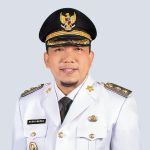 |
Mr. Husni MerzaVice Regent, Siak Regency of Riau Province Husni Merza was born in the city of Siak, Riau province, Indonesia on November 30, 1974. He completed elementary school in his homeland Siak Sri Indrapura. After that, he continued junior high school and high school in the city of Ponorogo, East Java, Indonesia. earned a bachelor’s degree in business administration from the International Islamic University Malaysia in 2002, and a master’s degree in management from the Islamic University of Indonesia, Yogyakarta, Indonesia in 2009. He started his career as Chairman of the Siak Regency Regional General Election Commission from 2003 to 2009. After that, he joined PT Permodalan Siak from 2009 to 2020, a company owned by the Siak Regency government that provides financing for micro and small businesses. This company also provides financing for farmers who own small oil palm plantations. Husni’s last position in this company was President Director. While leading this company, Husni became familiar with sustainable development policies. After working for approximately 10 years in the business sector, Husni then changed his career to politics by participating in the regional head general election in 2020. Husni ran as a candidate for deputy regent of Siak Regency with Mr Alfedri, the Regent of Siak at that time. After winning the election in December 2020 and being officially inaugurated in June 2021, Husni is increasingly exploring the sustainable development agenda. One of the reasons is that Siak Regency is the initiator and the vice chairman of Lingkar Temu Kabupaten Lestari (LTKL), an association of regencies that is concerned with environmentally friendly development and sustainable development. Under the leadership of Alfedri and Husni, Siak Regency is committed to continuing the sustainable development agenda with the concept of “prosperous society, protected nature”. |
 |
Ms. Benjamas ChotthongiDirector of the Project Development and Planning Program Division Benjamas Chotthongi is a senior researcher at the Thai Environmental Institute (TEI). She holds a master’s degree in environmental studies and is currently pursuing a doctoral degree in public policy. With nearly 30 years of experience, she began her career working with communities and local government organisations. She then began working more extensively in research and development in environmental management policy. She has made significant contributions to policy recommendations and plans for various environmental quality management initiatives. Her work involves extracting lessons learned and developing environmental management practices, livable city development, and transitioning businesses to green practices. This includes financing biodiversity diversity efforts that involve collaboration with government agencies, financial institutions, and business stakeholders. Additionally, she is interested in developing business systems that are environmentally friendly throughout the production chain in order to reduce the impacts of business operations on the environment, climate, and biodiversity. |
 |
Mr. Sebastian WijayaCOO Sebastian is the Chief Operating Officer at Agridence with 15 years of experience in building and leading tech start-ups across Southeast Asia, including a few notable exits. He has deep expertise in building products across multiple verticals including e-commerce, fintech, big data and blockchain. He is a certified scrum master and product owner with experience in leading large multi-functional teams to implement principles and digital transformations. He is currently responsible for leading the ideation, design and development process for AGD’s product suite. Sebastian holds a Masters’ degree in engineering from NTU and fluent in English, Mandarin and Indonesian. |
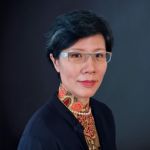 |
Ms. Khor Yu LengAssociate Director (Sustainability) and Senior Fellow Senior Economist Ms Khor Yu Leng is senior economist at Segi Enam Advisors Pte Ltd, and Associate Director (Sustainability) at the Singapore Institute of International Affairs. She works on business development and ESG risk for corporates and supply chains, including assignments for Fortune 100 and regional companies, financial institutions, international NGOs, and government agencies (e.g., the EU Commission, Malaysia and others). For 15 years, Yu Leng has followed the progression of sustainably produced commodities into the regulatory (forced labour and climate-aware) and green finance era. There have been many touch points with the financial sector, where she started her career. She has worked on market studies for palm oil, biofuels, rubber, timber, biomass, other agribusiness and suppliers of input, equipment and logistics; along with deep dive risk analysis studies for these and other sectors (e.g., e-commerce, telecommunications, mining). She has advised big buyers, SMEs and smallholders about sourcing and market opportunities, with a rising focus on the economics of carbon and conservation. Her comments are featured regularly in the media, including Malaysia’s BFM 89.9, Channel News Asia, China Daily, Bloomberg and Reuters.
Trained at Oxford University and the London School of Economics, Yu Leng started her career in stockbroking and banking. She is a regional specialist with a global network. She is also an independent director at SIPEF (listed on Euronext), and at non-profit Rimba Collective, a FMCG-led fund targeting USD 1 billion for 500,000 hectares for long-term forest conservation and restoration in Southeast Asia. She has also covered China deals and supply chains in ASEAN and she is Associate Fellow at the Institute of China Studies at University Malaya.
|
 |
Mr. Agus SariCEO Agus Sari is CEO of Landscape Indonesia, an advisory supporting sustainable landscape management in a changing climate. He also teaches at the School of Business and Management, Institut Teknologi Bandung (SBMITB) and cofounded the Sustainability MBA Program. He is also on the board of the Indonesia Sustainable Districts Forum (Lingkar Temu Kabupaten Lestari, LTKL) and Southeast Asia Board of the Tropical Forest Alliance (TFA) of the World Economic Forum. Prior, he was CEO of a grant-making Belantara Foundation, Deputy Chair on Planning and Financing of the Presidential Agency for Reduction of Emissions for Deforestation and Degradation of Forests. And prior to that, he was Country Director of Ecosecurities. He graduated from Energy and Resources Group, University of California, Berkeley. He enjoys outdoor activities, and is a vegan. |
Moderator:
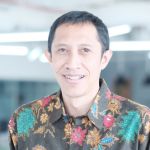 |
Dr. Nirarta “Koni” SamadhiCountry Director Nirarta “Koni” Samadhi is the country director of WRI Indonesia since 2015. Formerly known as Deputy Minister of Indonesia’s Unit for Development Monitoring and Oversight (UKP4), he and WRI have worked together over many years, and he joins WRI Indonesia at a time when its work in the forest, land use, and governance sectors is expanding. While at UKP4, Koni played a leading role in designing policies such as Indonesia’s ground-breaking forest moratorium, establishing Indonesia’s new REDD+ agency (BP REDD+), and driving the One Map Initiative to harmonize Indonesia’s land use planning. Koni previously served as chair of the Working Group on Forest Moratorium Monitoring, was part of the Indonesia REDD+ Task Force. Under his directorship, WRI Indonesia has been trusted to support the Government of Indonesia in developing the Low Carbon Development Initiative, facilitating the National Plastic Action Partnership, working with corporates to push the Clean Energy Investment Acceleration to assure clean energy supply to meet corporates’ decarbonization pledges, supporting the One Map Policy at the sub-national level, and working with several sub-national government to advance social forestry, customary forest acknowledgement, and oil palm smallholder certification. Within Asia region, he works with the ASEAN Secretariat on sustainable peatlands management, and with WRI China proposing soft commodities green supply index for China. While at the same time facilitate the energy transition with the support from global key philanthropic groups in Indonesia, Vietnam, and the Philippines. He is also sitting at the Steering Committee of the Southeast Asia Climate and Nature-based Solutions (SCeNe) Coalition. |
